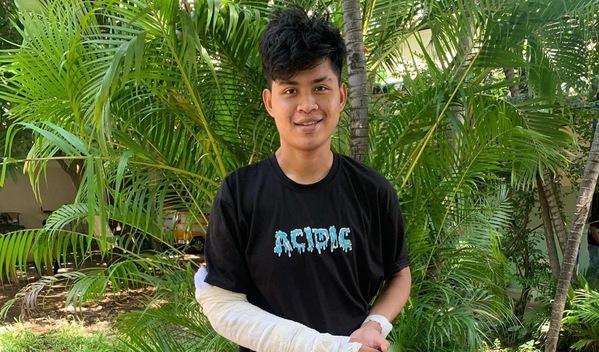Devid is an active 18-year-old from Cambodia who is in 12th grade. He lives with both his mother, who works as a tailor, and his grandmother in Cambodia. During his free time, he enjoys learning more about fitness via the internet, as well as exercising with friends. He shares that his best subject in school is Khmer literature, and he aspires to become a teacher in the future.
At the end of 2019, Devid was in a motorcycle accident that caused injuries to his right arm. Although he had his wounds treated after the accident, both his right shoulder and elbow currently have no movement, and he has no wrist flexion or extension. Fortunately, surgeons at our medical partner’s care center can help. They will perform a functional free muscle transfer gracilis of his right arm so he can regain movement.
Our medical partner, Children’s Surgical Centre (CSC), is requesting $991 to fund Devid’s repair surgery. Once completed, this procedure will hopefully allow him to restore mobility and continue his daily activities with less difficulty.
Devid says, “I am grateful that I can return to school and regain my strength after this surgery.”

